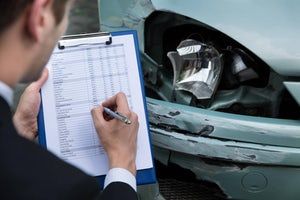
With winter comes many festivities and gatherings of friends and family required increased travel, usually in poor weather conditions. We have some reminders and safety tips from the Minnesota Department of Public Safety and the Minnesota Department of Natural Resources (DNR) to keep us all safe while traveling this winter.
Winter Driving
- Clear snow and ice from vehicle windows, hood, headlights, brake lights and directional signals before you drive
- Ensure you have the proper emergency items in your vehicle such as scraper/brush, small shovel, jumper cables, tow chain and a bag of sand or kitty litter for tire traction
- It is recommended for parents and caregivers to use blankets above child restraint harness, as opposed to bulky clothing underneath, to ensure the harness fits properly - this is especially important in car seats!
- Parents of teen drivers should make sure new drivers experience snow and ice driving in a safe environment, such as an empty parking lot
- The law requires you to have your headlights on at any time it is raining, snowing, sleeting, or hailing
- Stay in your vehicle if you become stranded - this is the safest place to wait for help. Call 911 and stay buckled up!
Ice Safety: Surviving Submersion in Cold Water
- Don't panic. The shock of cold water can cause you to inhale water and/or hyper ventilate. Try to get your breathing under control.
- Don't remove your winter clothing. Heavy clothes won't drag you down, but instead, can trap air to provide warmth and flotation.
- Turn toward the direction you came from. That's probably the strongest ice. Assess the situation, call out for help.
- Place your hands and arms on the unbroken surface. Use ice picks, a pair of nails, or sharpened screwdrivers to get extra traction needed to pull yourself up onto the ice.
- Kick your feet and dig in your ice picks to work your way back to solid ice.
- Lie flat on the ice once you're out and roll away from the hole to keep your weight spread out. This may help prevent you from breaking through again.
- Get to a warm, dry, sheltered area and reward yourself immediately. In moderate to severe case of cold water hypothermia, you must seek medical attention.
Lakeside Insurance Brokers wants you to stay safe and remember these safety tips while traveling and enjoying cold-weather recreation this winter.











